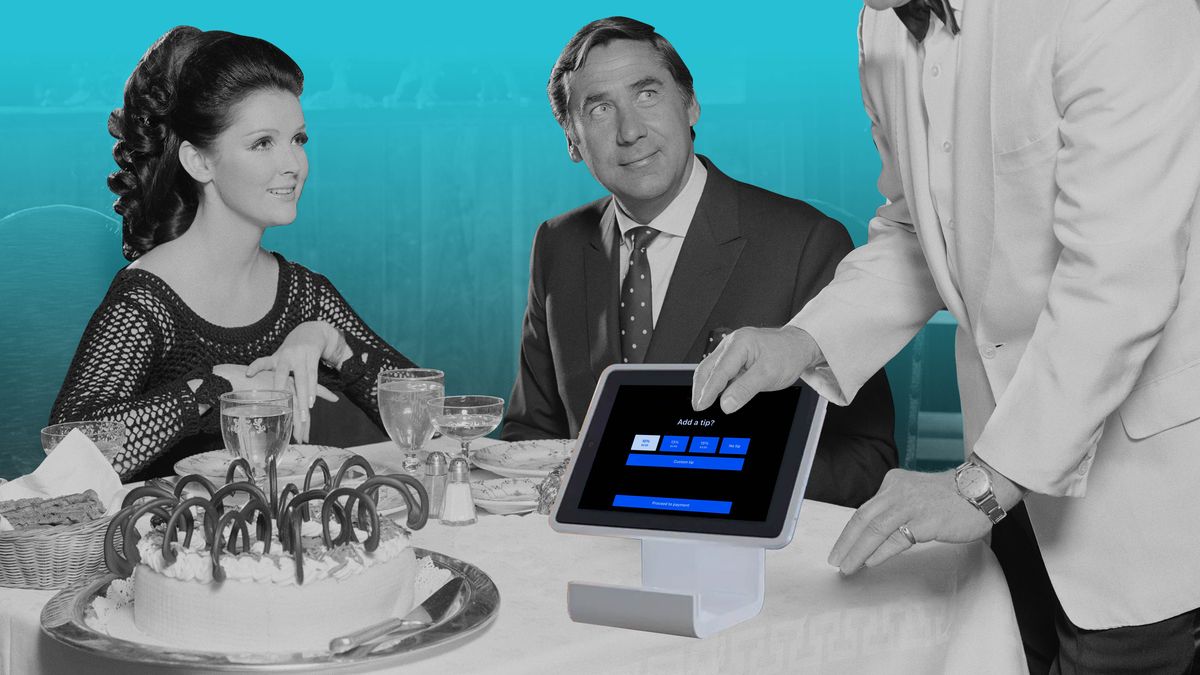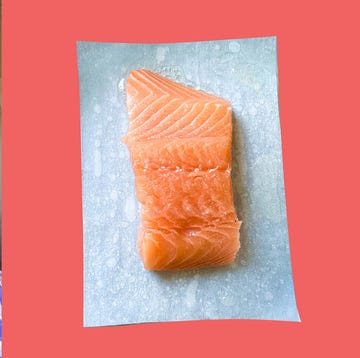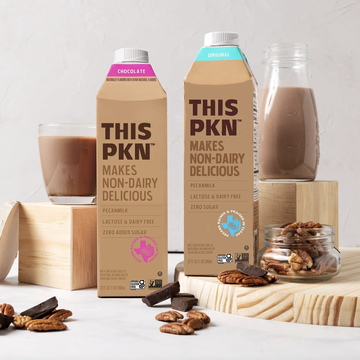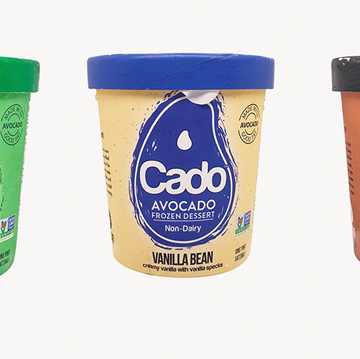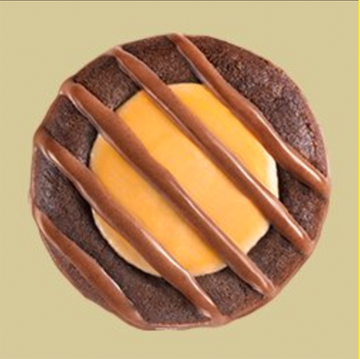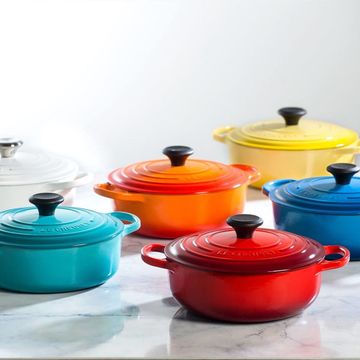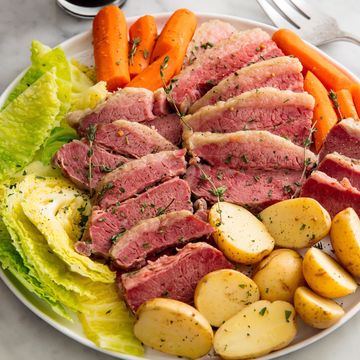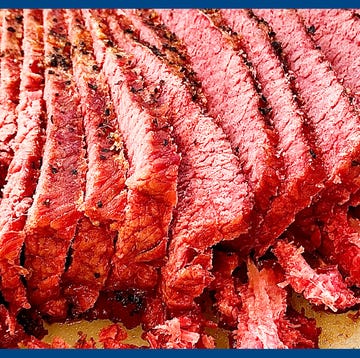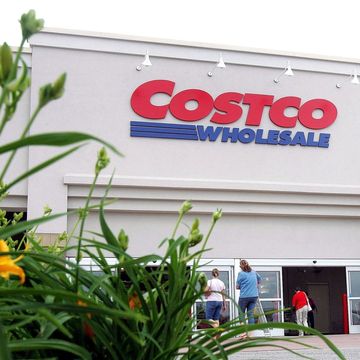It's the year 2023: A flip of an iPad causes your palms to sweat like the condensation forming on your $6.49 iced chai. The iPad screen prompts you to choose a tip percentage before you can safely leave Starbucks with your drink. You hit the middle button, 20 percent, making the total cost for one beverage almost eight actual dollars. Days later you start to notice the same iPad prompt at a pet-supply store, your butcher shop, and maybe even your weed dispensary.
Be honest: You've likely left a 20 percent tip on a bottle of water that you yourself grabbed from a refrigerated case, right?
It's becoming clear that we've reached tipping max capacity. Some might say gratuities have become, well, gratuitous. Tipping has gotten pretty weird, and this moment even has a nickname: guilt-tipping.
More From Delish
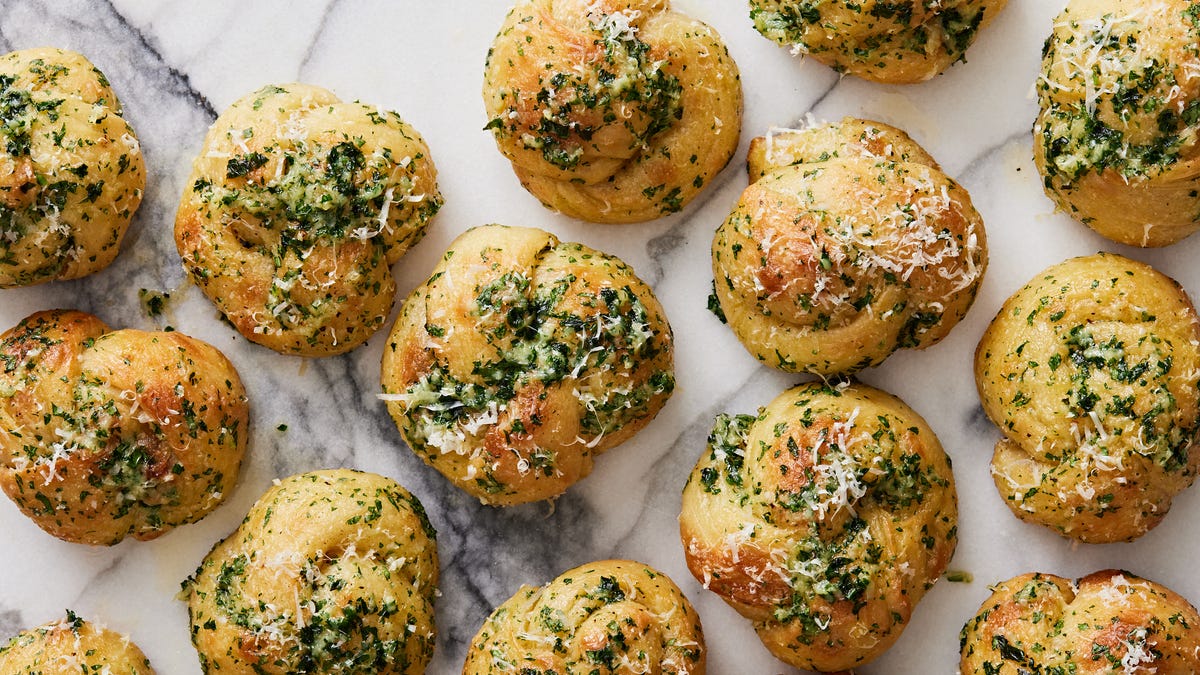
But others argue the opposite is true: This tipping point for tipping begs for a much larger overhaul for fairer wages across the service industry. All these prompts for tips are a symptom of a larger, deeply engrained problem. No matter where you stand on the argument, it's hard to ignore the noise and confusion.
Tipping, at least in the U.S., is thoroughly embedded in the wider culture.
Have you noticed that being perceived as a bad tipper might as well be as bad as being called a bad kisser? No one wants to be called cheap. The entire nature of service in the U.S. is framed around the hope of eventually receiving an assumed-upon tip. Employees doting on you and accommodating any request are norms you can expect in the U.S., whether it be at a restaurant, salon, or hotel.
But it wasn't always this way.
If you've visited any of a number of countries in Europe or Asia, you'll notice that not only is tipping not expected, but it's actually considered rude, or even a bit unnerving, since the origins of tipping were bribes of sorts.
As it turns out, it actually used to be pretty rude to tip in the U.S, too, and very common in Europe. In the early 1900's, several states passed laws to ban tipping, with the main criticism being that tipping creates an imbalance between customers and workers. This had roots in unjust post-Civil War efforts to keep down the wages of newly freed enslaved people. However, a perfect storm of Prohibition profit losses, the expanding hospitality industry, and new, high standards for service in the early 20th century lead to tipping becoming widespread in the U.S., according to Professor Marc Wentzer's paper, "The Payment of Gratuities by Customers in the United States: An Historical Analysis."
But how did tipping get so out of control?
With the growing prevalence of iPad-based point-of-sale (POS) software (i.e., Toast, Clover, and Square), which usually comes with a default tip, there have become even more opportunities to tip your service worker. And the pandemic certainly played a role, too. Many workers in customer-facing industries (restaurants, food delivery, and even nurses) have experienced erratic customer behavior and burnout all while not being protected by their employers both financially and from a safety standpoint.
"The new tipping weirdness is about something bigger," writes Charlie Warzel in The Atlantic. "More frequent prompts to tip can dredge up complex feelings of guilt and force us to confront difficult conversations: Why do some service industries have standardized tipping cultures, while others don’t?"
Here's just an abridged shortlist of new tipping opportunities you might've encountered the last few years: an online store, a self-serve frozen yogurt shop, and even the hospital. And it's not just the customers who feel uncomfortable. The tip prompts often lead to awkward experiences for the service workers themselves. I myself have been on both sides of the iPad and found it wasn't the cheap customers who were the source of my gripes. Rather, it was the business owners who made me rely on the tips in the first place.
We could call it a quirk of these POS systems or a sneaky way for less traditional businesses to off-set the costs of labor, or both. What remains true is that ultimately our relationship to tipping is rapidly shifting and causing confusion. The pervasiveness of new tipping scenarios is leading many to opt out of tipping altogether, even in more traditional situations like restaurants in states where the minimum wage for tipped employees is still only $2.13 an hour.
So what would it look like to end our tipping culture? Do we just go back to the tip jar?
Customers who complain about tipping may argue that there's a large amount of entitlement that comes with expecting a tip. One could also argue that we'd be better off shifting that blame to the business owners who assume patrons will subsidize their own labor costs. The solutions posed by complaining customers are hardly perfect either. It's equally hard to imagine those same customers being satisfied if they received less-than-friendly service but no expectation to tip, or had to pay higher food prices in order to provide fairer wages to service workers.
Maybe it won't be long until our tipping culture switches back to the old American model. One could (and should) dream. However, Prof. Mentzer himself aptly concludes in his article, that, "...if tipping could survive being treated as a criminal act, perhaps it can survive anything."
Mackenzie Filson is a food writer and contributing digital food producer at Delish. Her favorite ice cream flavor is chocolate-pine and if wine was an astrological sign she'd be a New Zealand Sauvignon Blanc. She's never met a bag of Spicy Sweet Chili Doritos she didn't eat in one sitting.
